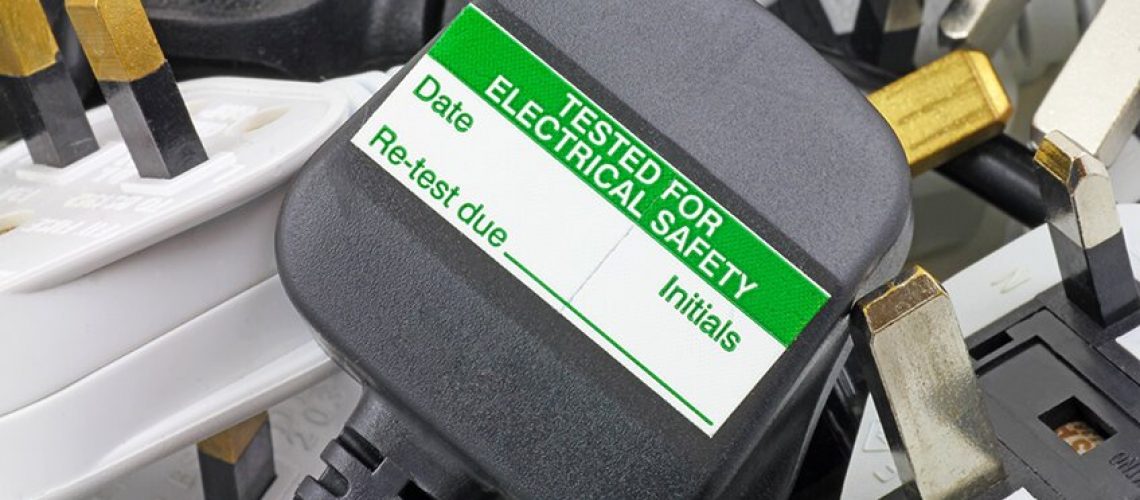Portable Appliance Testing (PAT) is an electrical safety inspection to ensure electrical appliances do not present a danger to employees, tenants, visitors, and homeowners.
Electrical Safety First reports that 53.4% of accidental fires in domestic settings are attributed to portable electrical appliances.
In the five years between 2014 and 2019, no fewer than 12,370 domestic fires were caused by electrical faults in tumble dryers, washing machines, fridge freezers, microwaves, and dishwashers.
Ensuring electrical appliances in the home, workplace or rented property are fit for use, you reduce the risk of damage to your property and avoid harm or injury to the people that use it.

Which Electrical Require PAT?
As a rule of thumb, any electrical appliance that can be moved and has a plug is subject to Portable Appliance Testing.
Typical household appliances include:
• Microwaves
• Fridge Freezers
• Washing machines
• Tumble drier
• Portable grills
• Toasters
• Kettles
• Coffee machines
• Televisions
• Computers
• Stereos
• Lamps
• Vacuum cleaners
• Extension leads
In recent times, mobile devices with a lithium-ion battery and high-speed charger should also be tested and relevant precautions are taken when using them. For example, don’t leave a mobile device to charge overnight.
The exception to the portable rule is electrical appliances that are fixed to a surface such as plug sockets and heated towel rails.

PAT Testing for Landlords?
Landlords have moral, social, and legal duty to demonstrate you have taken every precaution to reasonably ensure your property is safe to inhabit.
Government regulations state that landlords have an obligation to ensure that an “electrical system is safe” and that “all appliances you supply are safe.”
That does not mean that electrical appliances have to be PAT tested by law. However, some local councils do include PAT as a condition when determining whether a property is safe to lease to tenants.
Do You Need A Qualified PAT Specialist?
The Electricity at Work Regulations 1989 states “that electrical equipment with the potential to cause injury is maintained in a safe condition.”
However, the law does not specify how PAT should be conducted, by whom or how frequently. The Health and Safety Executive recommends the person that performs the testing should be “competent.”
Whilst it is not necessary to pay for the services of a qualified PAT specialist, a professional is best placed to ensure the electrical appliances in your property are safe to use.
A specialist PAT involves earth continuity, lead polarity, and insulation resistance. Appliances that pass the test are labeled with a barcode and registered as safe.
The barcode can be traced. For landlords, this proof clears you from any responsibility that you supplied electrical appliances that put tenants at risk of injury or death.
PAT is, therefore, a recommended best practice. To save time and money, the smart solution is to book a PAT test at the same time as an Electrical Installation Condition Report (EICR) inspection – which is a legal obligation.
To ensure your electrical appliances are fully compliant with safety standards, contact the experts at LRG Electrical today to book a PAT.

